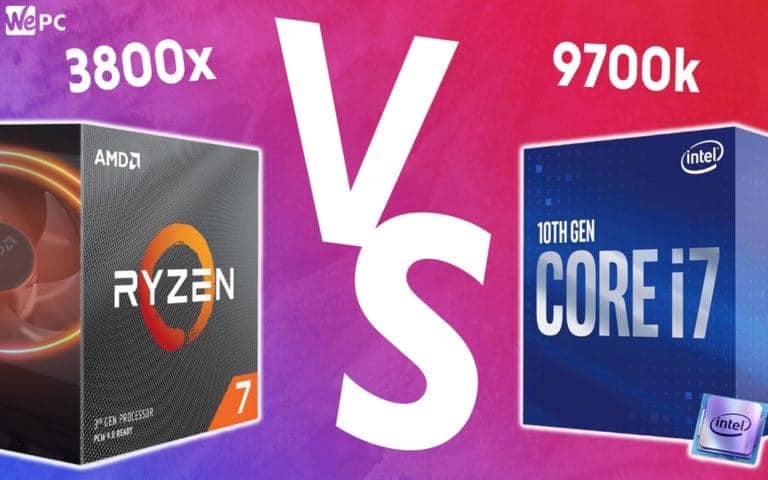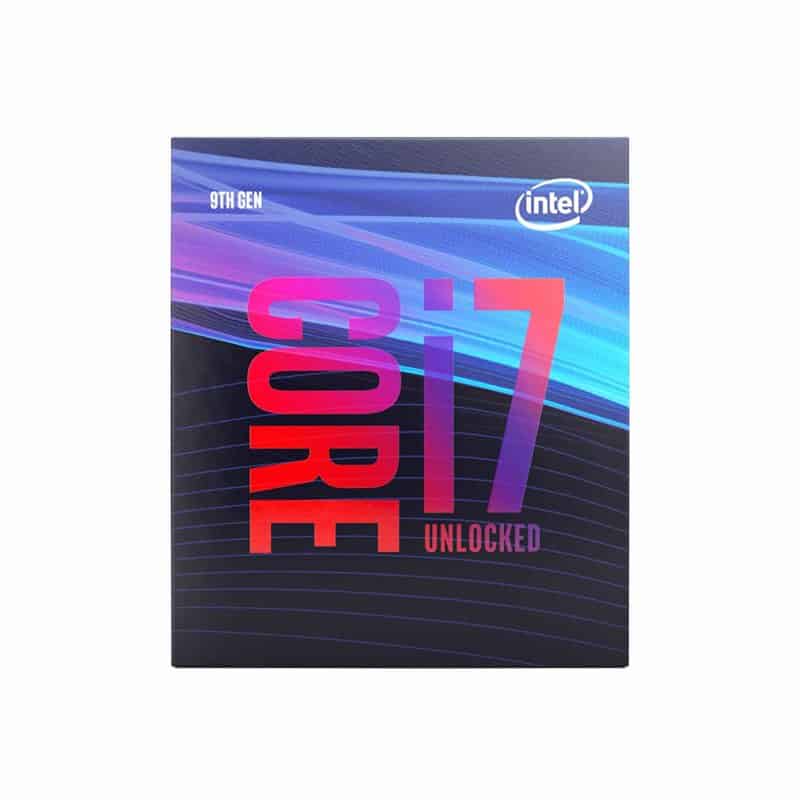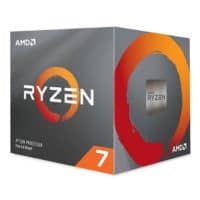
Octa-core processors have become somewhat of a gold standard for gaming in recent years, with Hexa-core CPUs filling the entry to mid-level portions of the market. If you’re one of many on the hunt for more cores, two of the dominant eight-core CPU forces at the minute are the AMD Ryzen 7 3800X and the Intel i7 9700K, but which one’s right for you?
Intel vs AMD
Unless you’ve been marooned on a desert island the past decade, you’ll at least have heard mention of the market conflict between Intel and AMD. Despite this animosity, both companies essentially grew from the same seed.
Founded in 1968 by former employees of Fairchild Semiconductor, a company that revolutionized integrated circuit technology, Intel was first on the scene…just. Not a year had passed when in 1969, eight more former Fairchild Semiconductor employees formed AMD. All involved in starting these companies had been colleagues, possibly friends, but as of May 1st, 1969, were fated to be rivals.
In bygone days, Intel had a stranglehold on the CPU market as there simply wasn’t sufficient competition. Little did they know that AMD, who up until 2017, had been living off Intel scraps, would release their first Ryzen CPU, officially marking the beginning of their ascendancy. Currently, AMD produces the highest performance CPUs, but Intel still holds on to a larger fraction of the market.
Cores and Threads
Cores are the backbone of your CPU, each of them an individual processor responsible for the examination and delivery of computational tasks. Historically, 4 cores were considered more than enough for gaming, but in this day and age, 6 are considered a solid amount, 8 being the sweet spot.
Of course, both the R7 3800X and i7 9700K are octa-core processors, so in theory, they’re more than capable of dishing out some truly awesome gaming performances. In fact, next-gen consoles are being developed with octa-core systems, so it makes sense to keep up with them for PC gaming.
Even with 8 cores apiece, these CPUs are far from identical, the main divergence being multithreaded core construction, or in Intel-tongue, hyperthreading. A single multithreaded core is capable of concurrent instruction executions, while a single core only takes on singular operations. The 3800X does feature multithreading, meaning it has 16 threads. The 9700K does not feature hyperthreading and has but 8 threads.
Single-core processing isn’t necessarily a bad thing. Both core designs have their benefits and weaknesses. Multithreaded cores are fantastic at multitasking, able to shoulder parallelizing workflows and core-heavy software. Single-core CPUs are more efficient during focused tasks such as gaming.
Clock Speed
After cores, the next most important factor of CPU performance is clock speed. Clock speed works in tandem with CPU cores to process information as fast as possible. The real-world effect of high clock speed is fast loading and interactions with single applications, so it’s pretty important for gaming.
Interestingly, at 3.9GHz, the R7 3800X has a faster base clock speed than the i7 9700K (3.6GHz), but the Intel CPU has the higher boosted frequency maxing out at 4.9GHz. The 3800X is only designed to reach boosted rates of 4.5GHZ. This means the AMD chip should have a consistently faster average clock speed, but the Intel chip has a more dynamic range that brings a different kind of efficiency to the table.
Engaging in some manual overclocking, you should be able to hit a stable 4.3GHz with the 3800X, but if you have a quality custom loop, you may even be able to push out 4.4GHz. Thanks to an improved thermal interface, you can push the 9700K to a whopping 5.3GHz.
Architecture
The Ryzen 7 3800X is built on AMD’s Zen 2 architecture capable of executing 15% more instructions than its predecessor Zen+. It also features improved interconnect fabric, zero-latency memory mirroring optimization, and larger L1 (512KB), L2 (4MB), and L3 (32MB) caches for super-fast data storage and recovery. Zen 2 also showed improved performance via its 7-nm process size, as the smaller the die size of the CPU, the fewer defects it will have. Zen 2 chips feature AM4 sockets, making them backward compatible with older motherboards.
Moving on to the Intel side of things, the i7 9700K is made using the Coffee Lake blueprint. Coffee lake superseded Skylake and Kaby Lake, and if we’re being honest, there was no massive structural upheaval. They even stuck to the 14-nm process size. Other than an increased transistor gate pitch enabling higher peak power and frequency, the only difference was it was designed to work with more cores. Coffee Lake chips require an LGA 1151 socket, only found in newer mobos.
Multi-Tasking
Here’s the thing…if you need a computer that can handle complicated multitasking, you needn’t consider any other category. What you want is the Ryzen CPU. with 8 multi-threaded cores, it’s by far more capable of the swift and fluid running of multiple applications, making it best by default for content creators, people who game and stream simultaneously, or even tab hoarders. The Intel CPU just can’t compete on this playing field with a traditional single-core structure.
AMD’s advanced multi-threading technology means that it’s altogether faster during rendering, compression, encoding, and general productivity. That said, during single-core workloads, Intel’s no-nonsense approach to core design sees the 9700K take the lead.
Final Words
Declaring a winner here is a difficult call to make, as both cards have their own areas of excellence. In terms of features, we have to give it to AMD. The 3800X supports DDR4 3200 memory whereas the Intel chip maxes out at DDR4 2933, and what’s more, the AMD CPU boasts a 166% larger L3 cache capacity than the Intel chip.
The i7 9700K does come with an integrated UHD Graphics 360 card, which is a nice touch, but the 3800X comes with an integrated cooling system. In our opinion these extras sort of cancel each other out, and besides, to optimize CPU performance, both would need to be replaced with dedicated hardware.
With a backward-compatible AM4 socket, AMD’s Zen 2 architecture also has an edge when it comes to compatibility, but the overclockers out there will only have eyes for the i7 9700K as it can be stabilized at much higher frequencies.
Technically, as you won’t have to fork out for a new motherboard, the AMD chip offer is by far the better value for money option and being that it’s much more energy-efficient, you’ll be saving money on your bills every time you play. Zen 2 also exhibits better computational performance across the board, but Coffee Lake, with those highly focused single cores, offers larger frames per second averages in almost any game.
With all this information accounted for, it’s clear to us that the best CPU overall is the Ryzen 7 3800X; however, if you need a computer solely for gaming, the i7 9700K is leagues ahead.




